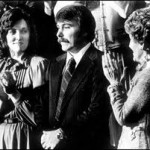 “That was one hell of a sermon, preacher.” That was the word of encouragement passed on to my good friend at the conclusion of an especially inspiring Sunday morning sermon.
“That was one hell of a sermon, preacher.” That was the word of encouragement passed on to my good friend at the conclusion of an especially inspiring Sunday morning sermon.
The young man paying the compliment was a simple diesel mechanic named Terry. Terry came to church every Sunday with grease under his fingernails; tattoos peeking out from beneath his cut-off sleeves; and the smell of Marlboros heavy on his breath.
This didn’t mean he couldn’t recognize a good sermon when he heard one, even if his praise was a bit unorthodox. Beaming from ear to ear, pumping the pastor’s hand, this young man was happy to attend this little church to hear good sermons and pursue his new-found relationship with Christ.
It had not always been so. Terry’s story was one of glorious conversion like something you hear from a Billy Graham crusade. Drug abuse, alcoholism, failed relationships: He had suffered from and caused more than his share of disaster. Then, by God’s grace, it all turned around.
My friend, his pastor, had been instrumental in this transformation. He served as a spiritual guide to Terry, a true pastor, helping him sort out all his past baggage, pointing him forward, and allowing the rough edges to remain. After all, God looks at a person’s heart not the grease under his fingernails.
If only people were the same. One Wednesday Terry was running late for the church’s weekly Bible Study. He came straight from work. No shower, no shave, no change of clothes. He came like that old hymn so often sang: Just as I Am.
A self-appointed delegation met Terry in the parking lot on this particular night. This group told Terry that should he wish to continue to be a part of the church, it was time he learned to dress right, cover those devilish tattoos, and clean up his language.
Terry’s reaction was expected. He was crushed. Bible in hand he returned to his truck, drove away and never returned. The chances of him ever giving church a shot again are slim to none. Who can blame him?
The pastor, my friend, only discovered the transgression against Terry after the fact, when his usual seat in worship was inexplicably vacant. My friend, to his credit, no longer pastors that church.
The last time we find Jesus in synagogue on the Sabbath, he healed a woman who had been crippled for eighteen years. With just a word and a touch he caused her to regain her lost strength. Those who happened to be in church that weekend were astounded.
But this was more than the synagogue attendant could stand. He makes the audacious statement, “There are six days of the week to get healed – not on the Sabbath” (See Luke 13). It’s good for people to get well, in other words, but not on Sunday and not in the church house.
A woman who had been broken for eighteen years – eighteen years! – had been healed, and all this man could do was fret over the minutia of keeping the rules. He couldn’t celebrate the physical and spiritual deliverance of one who had long suffered. All he could see was the grease under the fingernails of a Nazarene carpenter who had violated the sacred customs of worship.
He rebuked the awe-struck crowd and chided the healed and the Healer. We never find Jesus attending the synagogue services again. Never. Who could blame him?
Question: Why won’t some people go to church? Answer: Because they have been. This is no excuse for throwing away spirituality, not in the least. But it is recognition that the church, when it behaves in ways oppositional to its Founder, is its own worst enemy.
Jesus intentionally broke the rules and customs of the religious establishment not for rebellion’s sake, but to reveal how preposterous it was to hold to these rules: Choosing to honor the oppressive Sabbath law over celebrating the healing of one of God’s children; and running off diesel mechanics whose hearts have changed but who don’t dress right on Sunday. This is ridiculous! Actually, it’s more than ridiculous. It is sinful.
On this weekend when we celebrate our national freedom, let us also remember the freedom that Christ brings. For those whom “the Son sets free are free indeed,” and no amount of religious rule-making manipulation can change that.

